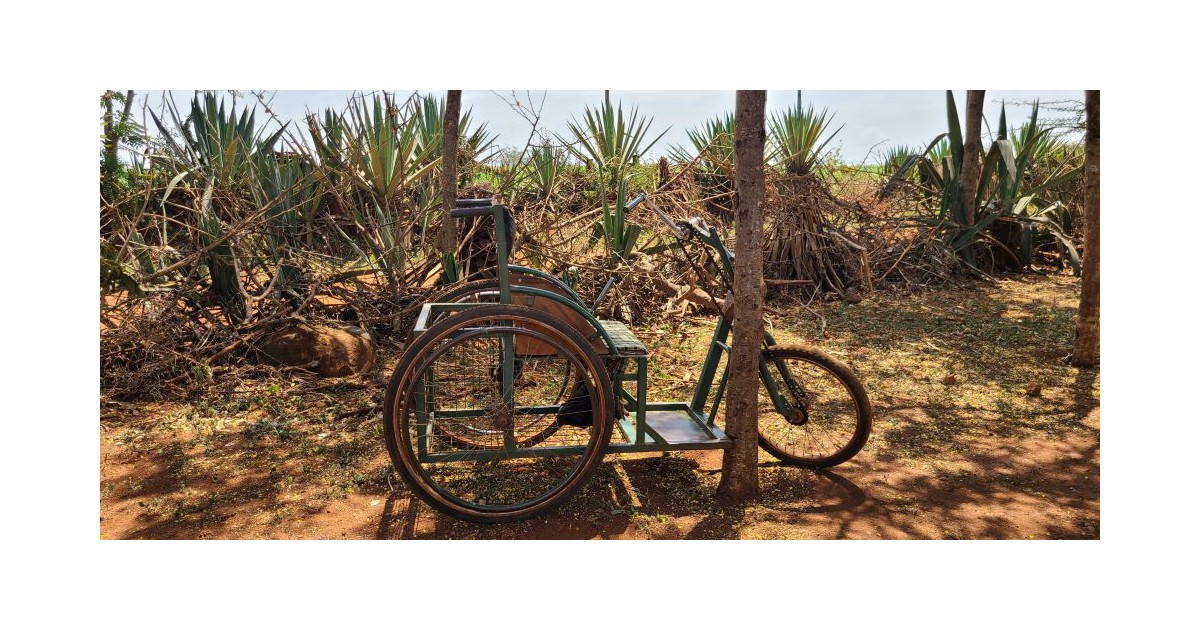“People used to say I was a burden, but now I carry the world on my shoulders and turn my pain into strength.”
– Amina, a Tanzanian mother with a disability.
Amina is a mother of two from Zanzibar who lives with a disability. She suffered relentless violence in her marriage, but her parents encouraged her to stay with her abusive husband, who provided for the family, but given the stigma attached to disability, it can be difficult for a woman with a disability to find a husband.
Against her parents’ advice, Amina left an abusive relationship and started a small henna business to support her children. Though life remains tough, Amina’s determination to envision a life free of violence offers us valuable lessons.
To commemorate the International Day of Persons with Disabilities and as part of the 16 Days of Activism against Gender-Based Violence, We reflect on three things we learned about gender-based violence (GBV) over the past year engaging with and listening to people with disabilities across Tanzania.
Women and girls with disabilities report higher rates of sexual and gender-based violence. Gender-based violence is a major development challenge, with new data showing that 35 percent of women in Tanzania have experienced physical violence from an intimate partner. Additionally, most of the approximately 5.3 million people currently living with disabilities in the United Republic of Tanzania are women.
One of the most striking findings from the World Bank’s ongoing qualitative research on disability here is that people with disabilities are vulnerable to multiple forms of GBV: women with disabilities find rape by family members, community members, or strangers commonplace.
Different types of disabilities increase vulnerability; for example, people with albinism are more susceptible to sexual abuse and infectious diseases due to harmful local superstitions that having sex with an albinos person will cure HIV/AIDS. Smaller community studies mapping the association between disability and likelihood of intimate partner violence and sexual violence have found similar findings, highlighting the need to collect data on GBV against people with disabilities more systematically.
Access to services and justice is difficult. People with disabilities are often hesitant to formally report violence because of the stigma they face. Women who have reported share their experiences of not being believed or being humiliated while reporting because of their disability. Even when services are available, they are often not tailored to the needs of people with disabilities. For example, sign language interpreters (SLI) are not available in some courts. Youth with disabilities, particularly those with intellectual disabilities, may also be more vulnerable to violence due to deep-rooted stigma. In other cases, service providers may not be adequately trained or have the resources to provide survivor-oriented services.
The recently approved Gender Policy in mainland Tanzania, the soon to be approved policy in Zanzibar, and the National Action Plan to End Violence Against Women and Children provide a roadmap to improve and increase access to quality services. Progress towards gender equality must leave no one behind. This requires a concerted effort by governments, civil society, health and legal systems, the private sector and citizens.
Women with disabilities want to be at the heart of solutions and responses. We have heard the phrase “you can’t talk about us without us” many times. People with disabilities want to be at the decision-making table. Their voices need to be heard and amplified so that policy changes benefit them.
What does that feel like?
That means listening to the voices of women and girls with disabilities and including people with disabilities in the workforce of service providers trained to address GBV. It also means enabling people with disabilities to take on leadership positions and address gender inequalities.
The Tanzanian government is leading all of us in this area. Women with disabilities have taught us about the need to create a change in the social environment to move away from the “charity model” or “medical model” that sees disability as a health problem that needs to be “cured” and to affirm the human rights model. Victims of violence have the right to receive services to lead fulfilling lives, regardless of their abilities.
At the World Bank, we are boldly challenging ourselves to incorporate these concerns into our work. Our revised Disability Inclusion and Accountability Framework provides a roadmap for integrating disabilities into our policies, operations, and analytical work, and helps our clients implement disability-inclusive programs.
The World Bank has made 10 commitments to accelerate efforts towards disability-inclusive development. The World Bank’s most recent financing package for the world’s poorest countries, IDA20, adopted a separate commitment to embed disability inclusion across core services. Together, we must strive to ensure that individuals like Amina are seen as pillars of resilience that strengthen the fabric of Tanzanian society. Together we can do much better – Pamoja Tunaweza!

